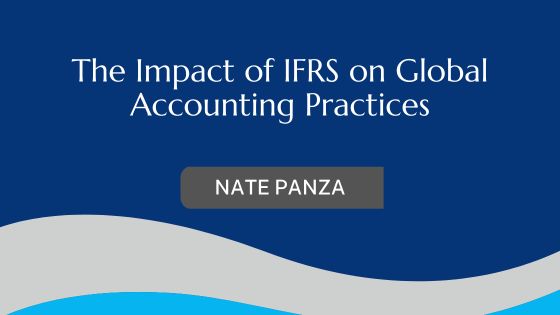The need for a unified financial reporting system has become increasingly apparent in the interconnected global economy. The International Financial Reporting Standards (IFRS) have emerged as a critical framework for harmonising accounting practices across different countries. Developed by the International Accounting Standards Board (IASB), IFRS aim to create transparency, accountability, and efficiency in financial markets worldwide. This blog explores the impact of IFRS on global accounting practices, highlighting its benefits, challenges, and the future of international financial reporting.
Benefits of IFRS Adoption
Standardization and Comparability
One of the most significant benefits of IFRS is the standardization of accounting practices. Before the advent of IFRS, countries followed their national accounting standards, leading to inconsistencies and difficulties in comparing financial statements across borders. IFRS provides a common language for financial reporting, enabling investors, regulators, and other stakeholders to compare the economic health of companies operating in different countries more effectively. This comparability fosters greater investor confidence and facilitates cross-border investments.
Enhanced Transparency
IFRS enhances the transparency of financial statements by providing a comprehensive framework for disclosure requirements. Companies must give detailed notes and explanations for their financial statements, ensuring stakeholders clearly understand their financial position and performance. This increased transparency reduces information asymmetry, mitigates the risk of financial misstatements, and promotes trust in financial markets.
Improved Efficiency
The adoption of IFRS can improve financial reporting efficiency. Multinational corporations operating in multiple jurisdictions often face reconciling different accounting standards. By adopting IFRS, these companies can streamline their financial reporting processes, reducing the complexity and costs of maintaining multiple sets of financial statements. Additionally, IFRS simplifies the consolidation of financial statements for multinational companies, making presenting a unified financial picture easier.
Challenges in Implementing IFRS
Cultural and Regulatory Differences
Despite the benefits, the implementation of IFRS is not without challenges. One significant challenge is the cultural and regulatory differences among countries. Each country has its unique legal, economic, and cultural environment, which can influence the interpretation and application of IFRS. As a result, the consistent application of IFRS across different jurisdictions can be challenging to achieve. Regulatory bodies and standard-setters must work together to address these differences and ensure that IFRS is applied consistently.
Costs of Transition
Transitioning to IFRS can be costly and time-consuming for companies, particularly for small and medium-sized enterprises (SMEs). The process involves training employees, updating accounting systems, and potentially redesigning business processes to comply with the new standards. These costs can be a significant burden, especially for companies with limited resources. However, the long-term benefits of adopting IFRS, such as improved access to international capital markets, often outweigh the initial costs.
The Future of IFRS and Global Accounting Practices
Continuous Evolution
The IASB continuously updates and refines IFRS to address emerging accounting issues and improve the standards’ relevance and reliability. This ongoing evolution ensures that IFRS remains a robust framework capable of addressing the complexities of modern financial reporting. As global financial markets evolve, IFRS will likely incorporate new standards and guidelines to reflect these changes.
Greater Global Adoption
The adoption of IFRS is expected to increase as more countries recognize the benefits of a unified financial reporting framework. Over 140 countries have adopted IFRS, fully or partially, and this number is likely to grow. Increased global adoption will further enhance the comparability and transparency of financial statements, promoting stability and growth in international financial markets.
Conclusion
The impact of IFRS on global accounting practices has been profound, bringing about significant benefits in standardization, transparency, and efficiency. While challenges remain in its implementation, IFRS’s continued evolution and adoption promise a more unified and reliable global financial reporting landscape. As businesses and regulators work together to overcome these challenges, IFRS will play a crucial role in shaping the future of international accounting practices, fostering greater trust and stability in the world’s financial markets.

